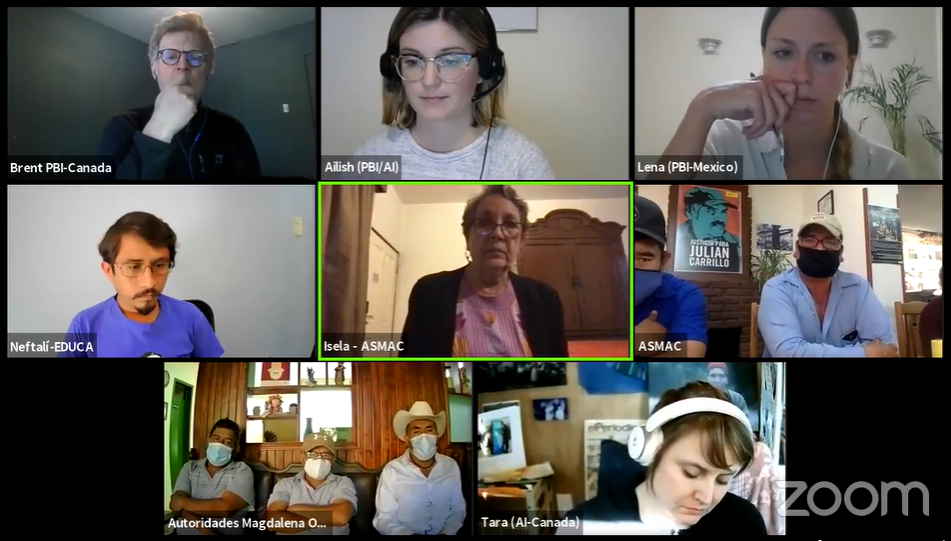Article by PBI-Canada

On April 8, PBI-Mexico posted: “Despite the contingency, at PBI we celebrate the continuation of a strong relationship with the organization Alianza Sierra Madre A.C. (ASMAC) and the defenders and communities that they accompany.”
They add: “PBI has accompanied ASMAC since 2018 due to the risks they face in their legitimate and recognized work in defense of human rights.”
In a feature article about ASMAC director Isela Gonzalez, The Guardian has reported: “A nurse by training, she later switched to anthropology. Some 22 years ago, her research took her for the first time to isolated villages among the pine-oak forests of the Sierra Madre, where she spent time with three tribes – the Rarámuri, Ódami and Tepehuán (who are together jointly named the Tarahumara by outsiders). She was awestruck by their social structure, use of forest medicines and relationship with the land.”
That article also notes: “Gonzalez’s group – Alianza Sierra Madre – initially started out as a biodiversity NGO. But they changed strategy when they realized the frontline of environmental protection was indigenous land.”
And it highlights: “To defend the Tarahumara’s rights, Gonzalez has organized protests, led occupations of government offices, filed lawsuits and compiled dossiers for the national government, the Inter-American Court for Human Rights and the United Nations.”
Gonzalez also participates in webinars, including the one on March 11 organized by PBI and Amnesty International Canada.
There she spoke about the assassination of Rarámuri land and territory defender Julian Carrillo, a protector of the community of Coloradas de la Virgen in the Sierra Tarahumara region in the northwestern state of Chihuahua.
The following day, on March 12, a court sentenced one of the two people who killed Julian Carrillo in October 2018 to 48 years in prison.
Gonzalez has commented: “It is a trial that sets a very important precedent, a message of no impunity for the killing of environmental defenders of land and territory because public prosecutors were sensitive and included the cultural perspective.”
Both ASMAC and the Centre for Women’s Human Rights (CEDEHM) also commented that they hope the judgment will serve as a benchmark for other Indigenous communities facing the same obstacles in their struggle for respect for their ancestral territory.
Their full statement of the “historic ruling” can be read here.
To watch the PBI/AI webinar, click here.

